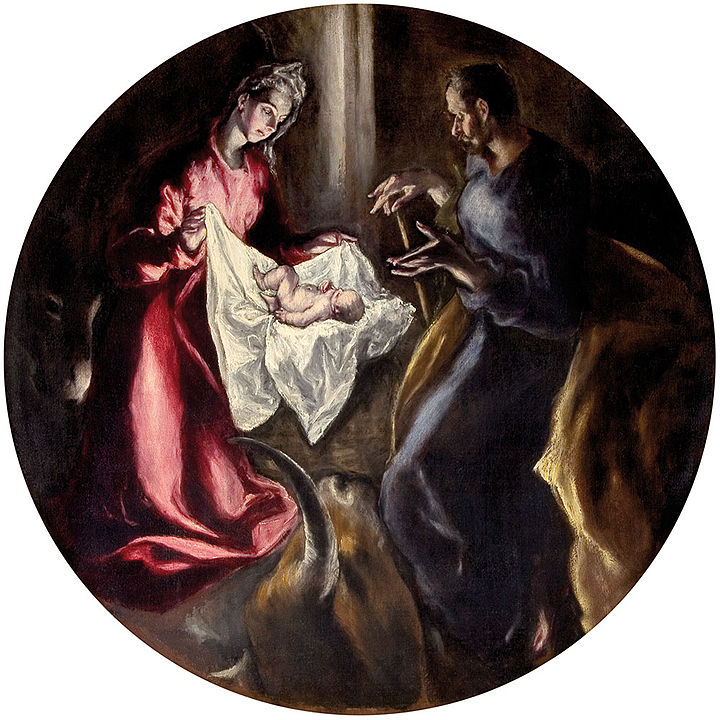
It can be a challenge for preachers to find a surprising or even just worthwhile word to proclaim underneath all of this hallowed tradition. The hymns can do so much of the theological work:
Hail! the heaven-born Prince of peace!
Hail! the Sun of Righteousness!
Light and life to all he brings,
Ris'n with healing in his wings
Mild he lays his glory by,
Born that we no more may die:
Born to raise each child of earth,
Born to give us second birth.
Hark! the herald angels sing
Glory to the new-born King
But, above all, you are forever to be adored:
For your Son Jesus Christ,
For his birth in human flesh, for his teaching, healing, and love,
For his suffering and death which wipe away our sins,
And for his glorious resurrection by which we share in your divine life.
A few years ago I wrote a column about Christmas for a (now defunct) newspaper:
For those of us who share — or try to share — Athanasius’s faith in the Incarnation of the Word, the world on Christmas Day can look like a highly charged place. If God’s action is not remote and distant, or localized in a special place, but abroad in the universe through the mysterious union of God and humanity, the whole crazy, kitschy apparatus of Christmas becomes a little easier to appreciate. When we gather around our Nativity scenes with our Norwegian-looking Jesuses and when we consecrate and break and share little pieces of bread that bear the presence of Christ, I remember that the Word did not become beautiful. It became flesh and pitched its tent among us.
Perhaps the most striking refrain in the whole song is the line on which it ends: “We didn’t know it was you.” The standard manger scene is a busy one, with shepherds and wise men, angels and animals all paying their respects. But again Luke’s Gospel is much more spare. It’s only from Matthew that we hear about all of Jerusalem in an uproar, a prominent star and traveling wise men. The only audience for the newborn Jesus, in Luke’s account, is a group of shepherds directed to the manger by the momentary appearance of the heavenly host. Jesus was very much hidden from the world at the time of his birth, revealed only to a divinely favored group of peasants and his unwed mother.
We say
pinhole.
A pin hole
of light. We
can’t imagine
how bright
more of it
could be,
the way
this much
defeats night.

 RSS Feed
RSS Feed